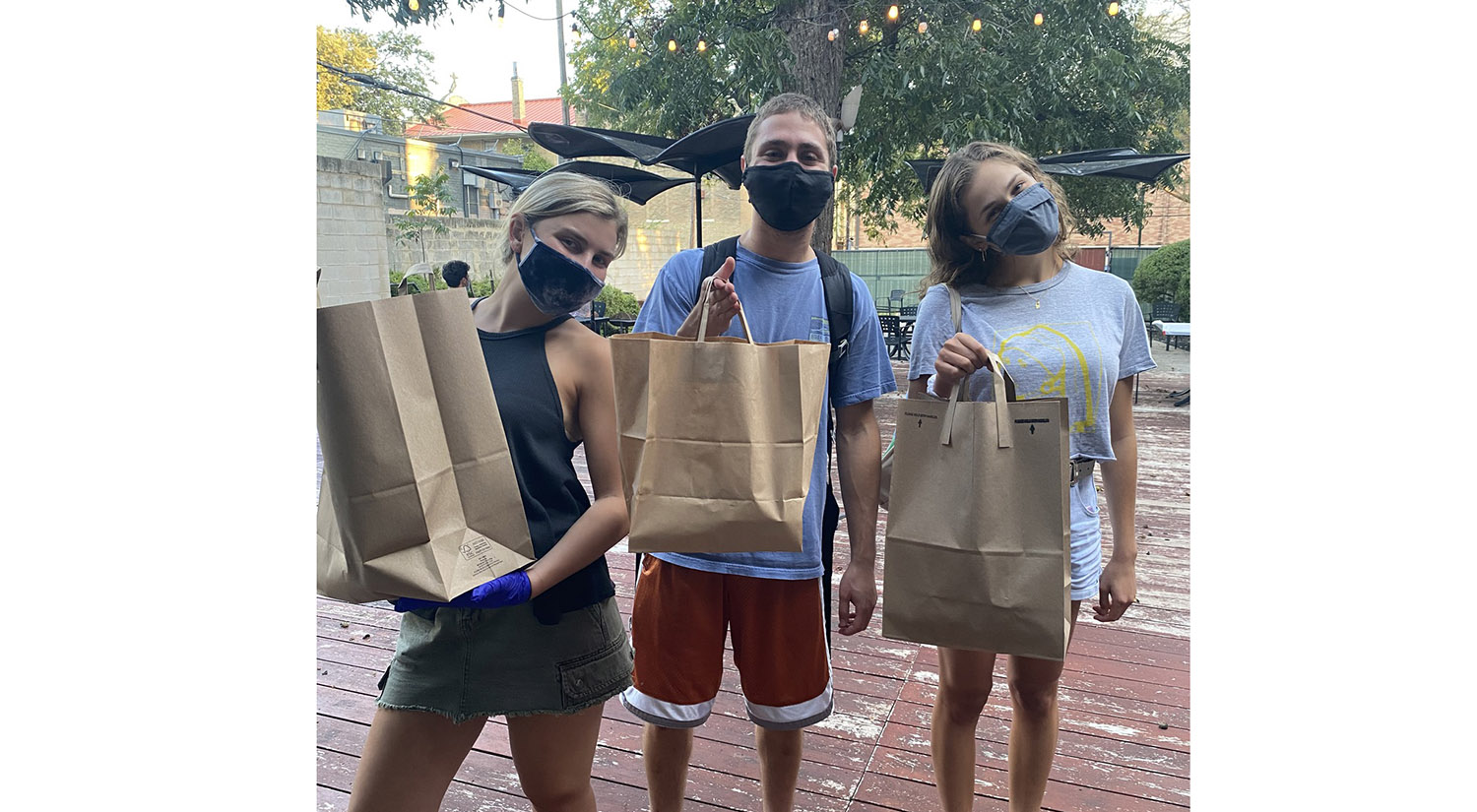
Campus Organizations Modify Offerings to Continue Reaching Students
Students pick up Shabbat-to-Go meals on the Texas Hillel patio. Courtesy of Texas Hillel
By Tonyia Cone
While the fall semester began with uncertainty for many students, one thing University of Texas at Austin students could count on was that Jewish organizations were prepared to continue supporting the campus crowd. Despite questions about whether students would return to classrooms or continue learning virtually, and whether many would even return to Austin this semester at all, Jewish professionals at the Rohr Chabad Jewish Student Center at the University of Texas, Texas Hillel and the Schusterman Center for Jewish Studies started the school year prepared to continue their outreach, connection and events for Jewish students, whether on and off campus.
Maiya Chard-Yaron, Texas Hillel executive director, explained that in March, UT went into an extended spring break when students did not officially return to campus at the end of the scheduled break. At that point, Texas Hillel had to react to the situation as it unfolded, and moved their spring offerings online.
Summer was a chance to work through scenarios and think through what the fall semester would probably look like in terms of UT’s situation; students returning to Austin, staying home or taking a year off to do something other than school; and local health authority and university guidelines. Throughout the summer, these were all moving targets, so Hillel planners worked through different situations.
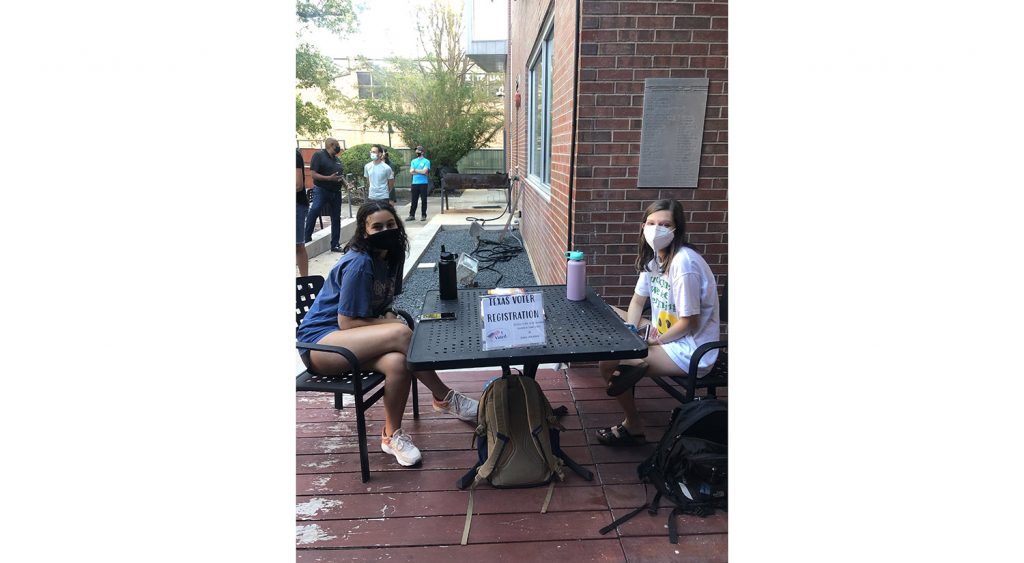
MitzVote interns help students register to vote during Shabbat-to-Go meal pickup. Courtesy of Texas Hillel
In July, Hillel surveyed students and the responses reinforced Chard-Yaron’s confidence in the importance of campus organizations like Hillel. Students expressed feeling anxious and nervous about coming back. They worried that they could feel trapped or isolated in the absence of safe ways to engage with peers and meet people while spending most of their time staring at online courses on screens in their dorm rooms or apartments.
“It was very clear that students were looking for a safe way to have Jewish community and they trusted Hillel to provide that for them,” said Chard-Yaron. “We needed to figure out what that looked like, keeping in mind that we were looking at guidelines from the health authorities and campus officials, and making sure we could do that.”
Hillel leaders worked closely with the Student Executive Cabinet and came up with a plan to start the year and how to adjust as needed. They created signage that explains COVID-19 safety expectations like face masks, event registration limits and adjusted procedures for entering the building, and warmly welcomes students.
Hillel redesigned its large outdoor patio space – outfitting it with wifi, shade umbrellas and misters, physically distanced furniture, individually packaged snacks and drinks — making it an inviting, comfortable space where students can hang out, eat lunch, and do school work while getting out of their rooms.
“We’re really trying to create the atmosphere of you aren’t stuck, you can come here. You can be around other people and it’s safe,” said Chard-Yaron.
Hillel has been able to continue ongoing small cohort programs, even while the city of Austin and University of Texas are not permitting gatherings in excess of 10 people, by focusing on bringing people together in small groups, outdoors and with face masks and virtually. The organization is offering its Life’s Big Questions fellowship virtually, and since it is very difficult for freshmen to meet people right now, a physically distanced in-person section for newcomers.
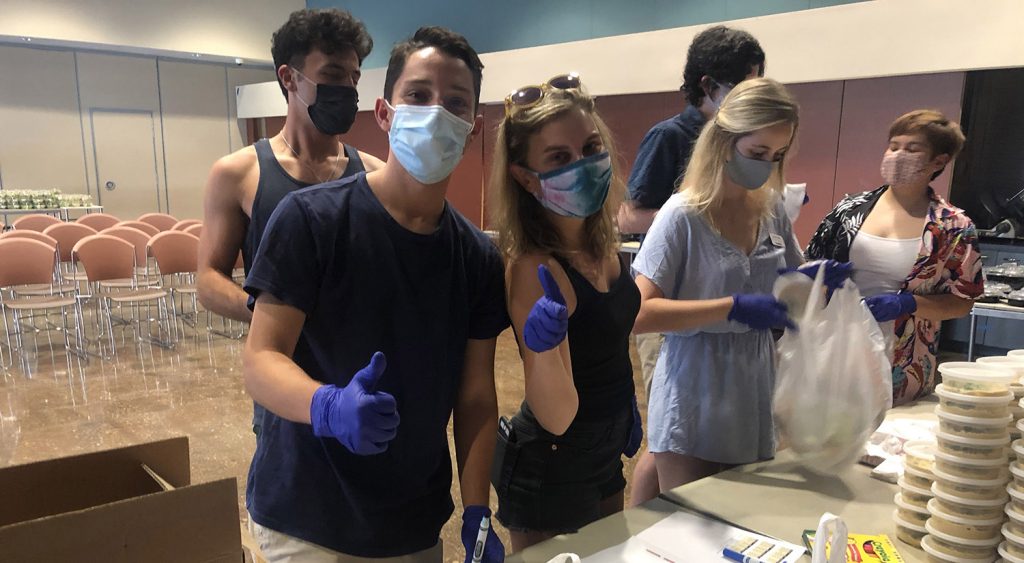
Students pack Shabbat-to-Go Meals at Texas Hillel. Courtesy of Texas Hillel
“We know that the impact of a small group can be really powerful because you get a lot of individual attention and people feel really noticed,” Chard-Yaron said, noting that some participants are in Austin while others are logging in from other locations.
Hillel has also continued serving students — more than 200 most weeks – with weekly virtual Shabbat services and Shabbat-to-Go meal pickup kits including ritual items, conversation starters and blessings. The organization also recently launched a virtual platform in partnership with OneTable where students can register to attend or host small pod events.
Especially in a time when everyone’s needs are changing, she explained, the organization’s first priority is care.
“At Hillel we always say that at our core we’re about building relationships, and on a really big campus, helping it feel a little smaller and making sure students feel noticed and feel they have a connection,” said Chard-Yaron. “In some ways, this focus on very small groups and on individuals and one-on-one conversations really brings that back to the forefront,” she said.
In order to stay connected and engaged with its students, the Rohr Chabad Jewish Student Center at the University of Texas has been using a texting system to keep students updated about its happenings.
Like Hillel, the organization has moved many of its offerings outdoors, including Rosh Hashanah and Shabbat services, launched a mental health initiative (for more on that program, see page 45), and offers Shabbat-to-Go kits, which enabled Chabad to continue its annual Pink Shabbat tradition, observing National Breast Cancer Awareness Month, with the Jewish sorority Alpha Epsilon Phi.
“Our Shabbat-to-Go has been extremely successful with hundreds of students picking up packages and being empowered to practice in their own spaces,” said Rabbi Zev Johnson, Chabad Jewish Student Center at UT co-director, noting that he hopes to resume in-person Friday night meals, following health guidelines, soon.
“With that said, we have been doing Shabbat lunch in person, outdoors with social distancing, since the beginning of the semester with great enthusiasm and success,” he noted.
Due to high demand, Chabad held Yom Kippur services in the Otis Hotel, in order for attendees to practice and fast in the comfort of air conditioning. The hotel ballroom allowed for 70 students at a time to join, with masks and plenty of space for social distancing.
“We had many more then 70 throughout the five services and we were frankly so impressed that so many students from so many diverse backgrounds showed up to be involved,” Johnson said.
The Schusterman Center for Jewish Studies has also continued serving the community, with a shift to completely virtual live classes and events.
“Both are going really well, although it is, of course, not the same sense of community,” said Tatjana Lichtenstein, director of the Schusterman Center and associate professor in the Department of History, noting that the silver lining is that people from across Austin, the state of Texas, and beyond can participate in the center’s events in a way that was not previously possible.
“My sense is that once we go back to in-person events, we might try to integrate a livestream option to make our talks, film screenings, and signature Gale lectures as accessible as possible. Staff, faculty and students have simply done a great job adapting so I am hopeful for the rest of this ‘virtual’ academic year,” she added.
The fall lineup included the Gale Family Foundation Fall 2020 Lecture, Terribly Close: The Holocaust in Polish Folk Art, by Erica Lehrer of Concordia University, Canada; Not in Our Town: The 1993-94 uprising of citizens against the Skinheads and Klan’s anti-Semitic and anti-Native American campaign in Billings, Montana, by Robert H. Abzug of the University of Texas at Austin, sponsored by Gale Collaborative on Jewish Life in the America; and a workshop in Judaeo-Arabic Texts from the Cairo Geniza with Paula Sanders of Rice University.
Lichtenstein explained that the events highlighted the Schusterman Center’s unique focus on Jewish life in the Americas and the history and memory of the Holocaust. The Schusterman Center’s events are free and open to the public, and the center’s online newsletter is available on its website, liberalarts.utexas.edu/scjs/.
“Our website has a lot of great information, the events we have held so far have been really successful and we have our Gale Family Foundation Fall Lecture coming up on November 15,” she said. ■
Latest Posts
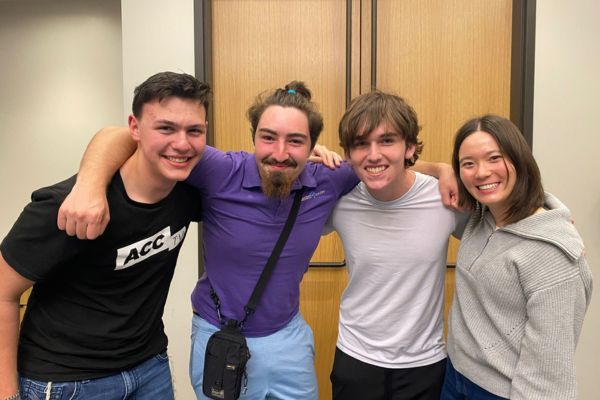
Act & Impact for Teenagers
Participants at the event on March 17, 2024. Credit: Maayan Oved By Shelly Shwartz Being a pro-Israel or Jewish teenager in high school right now can be difficult and confusing. The Israeli American Council (IAC) and Shalom Austin's Senior Youth and Teen Director,...
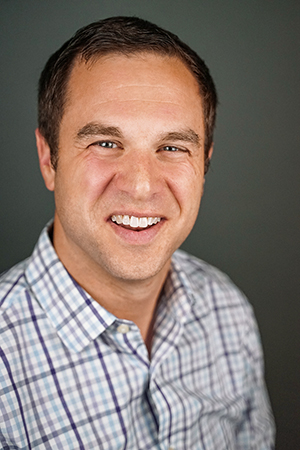
CEO Column – The Jewish Outlook March 2024
Rabbi Daniel A. Septimus. Courtesy: Shalom Austin As we approach Purim, a time when we are commanded to find joy and happiness in our lives, we know that this year’s celebration will be filled with mixed emotions. We continue to pray that all hostages are returned...

IGNITE! Amps Up With Honorees and International Musical Star
Matisyahu performing his music. Courtesy: Wasserman Media Shalom Austin is hosting its largest fundraising and community building event of the year, IGNITE!, on Sunday, April 7, 2024. IGNITE! will take place at the Dell Jewish Community Center. At the event, Sandy...
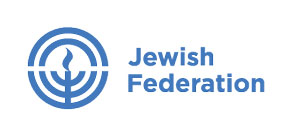
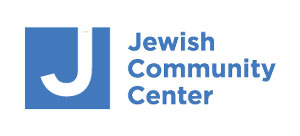
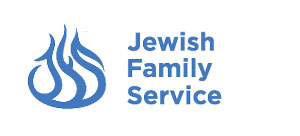
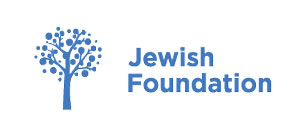
HEALTH & WELLNESS
Fitness
Swimming
Tennis & Pickleball
More Sports
EDUCATION
Jewish Culture & Education
Early Childhood Program Preschool
After School & Childcare
Camps
ARTS & CULTURE
Literary Arts
Visual Arts
Theatre & Film
Dance
COUNSELING & SUPPORT
Jewish Family Service
Counseling & Groups
Case Management
References & Resources
Copyright Shalom Austin 2023. Privacy Policy.
